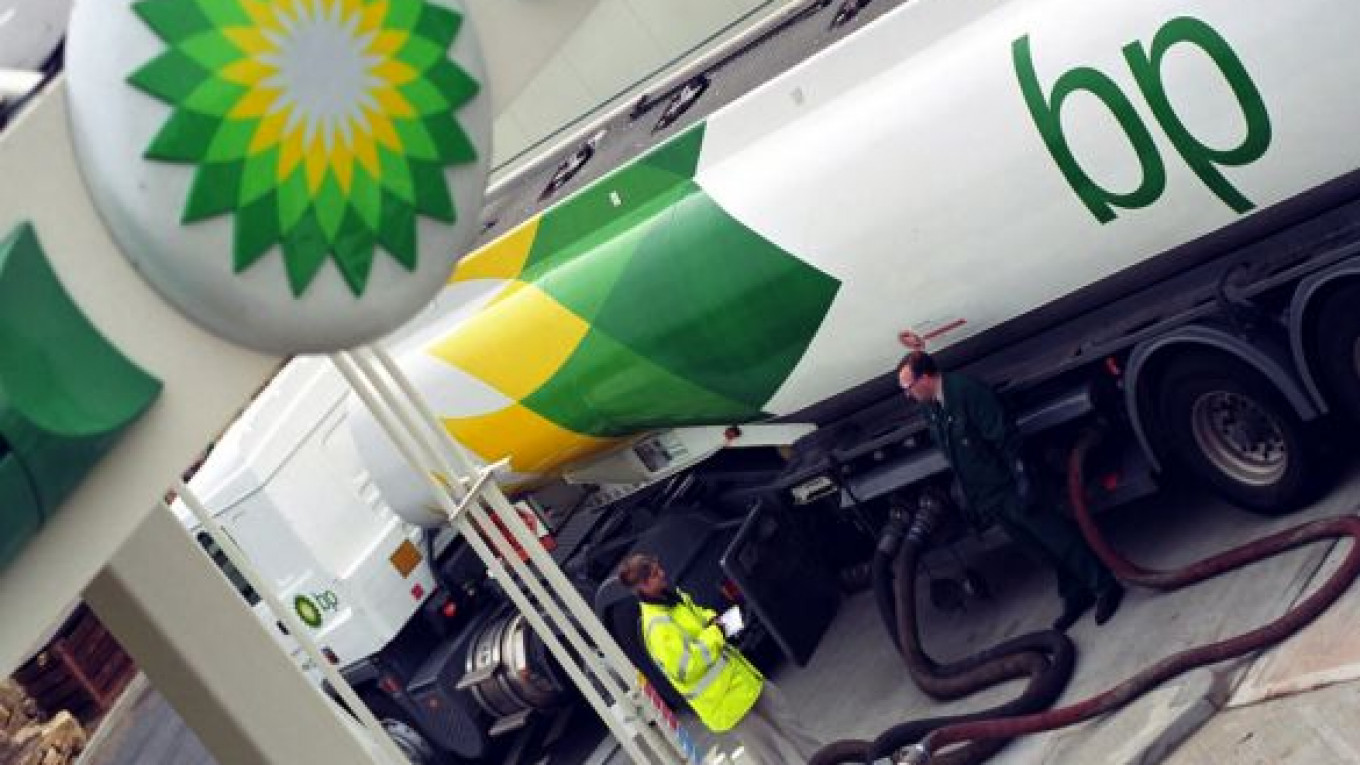Rosneft chief Igor Sechin proclaimed the “third-largest deal” in history as the state-owned oil firm put together a $61 billion scheme that will see it take over 100 percent of TNK-BP.
“Taking Rosneftegaz’s stock into account, this deal will require $61 billion, the third-largest deal in the world,” Sechin said during a meeting with President Vladimir Putin.
The $61 billion figure includes both funds to be paid by Rosneft for 100 percent in TNK-BP and the money that BP will pay for shares in Rosneft.
Sechin was speaking hours after the company on Monday afternoon announced separate deals to acquire the 50 percent stakes in TNK-BP held by BP and the AAR consortium.
Rosneft paid BP $17.1 billion in cash plus a package of its own shares amounting to 12.84 percent in exchange for the British oil major’s 50 percent stake of TNK-BP.
The two-tranche deal will see BP use 4.8 billion of the cash it gets to acquire a further 5.66 percent of Rosneft from the government.
Rosneft’s shares have been valued at $8 each for the purpose of the deal, a healthy premium on the $7.13 the stock closed at on Oct. 18, when the bid was made, and nearly 14 percent above Monday’s London close of $7.06 per share.
BP closed down 1.45 percent at 443.45 pence ($7.14) in London on Monday.
BP said in a statement Monday that it expects to have earned $12.3 billion in cash and hold 19.75 percent of Rosneft — including the 1.25 percent stake it currently owns — when the transaction is completed.
The British oil company, which has been working with Rosneft in one form or another since signing a joint venture to explore reserves off Sakhalin island in 1998, also expects to gain two seats on Rosneft’s nine-seat board.
Signing the deal would be dependent on the Russian government agreeing to sell the 5.66 percent of shares in Rosneft. BP said its sale of the TNK-BP stake and acquisition of the additional chunk of Rosneft should occur on the same day.
BP waived its right under the TNK-BP shareholder agreement to negotiate to buy AAR’s stake in order to allow Rosneft to take over the entire company, which is Russia’s third-largest oil firm.
In a separate deal, Rosneft agreed to pay $28 billion to AAR for its half of TNK BP. AAR is the consortium made up of Mikhail Fridman’s Alfa Group, Len Blavatnik’s Access Industries, and Viktor Vekselberg’s Renova Group.
Both deals remain subject to finalization of documentation and steps for regulatory approval.
When the deal goes through, Rosneft will overtake ExxonMobil to become the world’s largest publicly traded oil and gas producer in terms of output.
Rosneft turned out 2.45 million barrels of oil per day in 2011, while TNK-BP put out 1.99 million barrels of oil equivalent per day.
Rosneft is already Russia’s leading oil producer, and the acquisition of TNK-BP will make it responsible for 39 percent of the country’s output.
President Vladimir Putin gave his blessing to the deal during a meeting with Sechin on Monday.
“This is a good, big deal that is important not only for Russia’s energy sector but for the entire Russian economy,” Putin said in remarks carried by Russian television.
BP paid $8 billion for its stake in TNK-BP 2003 and has earned more than $19 billion in dividends since, making its investment a lucrative one even without the buyout announced Monday.
Related articles:
A Message from The Moscow Times:
Dear readers,
We are facing unprecedented challenges. Russia's Prosecutor General's Office has designated The Moscow Times as an "undesirable" organization, criminalizing our work and putting our staff at risk of prosecution. This follows our earlier unjust labeling as a "foreign agent."
These actions are direct attempts to silence independent journalism in Russia. The authorities claim our work "discredits the decisions of the Russian leadership." We see things differently: we strive to provide accurate, unbiased reporting on Russia.
We, the journalists of The Moscow Times, refuse to be silenced. But to continue our work, we need your help.
Your support, no matter how small, makes a world of difference. If you can, please support us monthly starting from just $2. It's quick to set up, and every contribution makes a significant impact.
By supporting The Moscow Times, you're defending open, independent journalism in the face of repression. Thank you for standing with us.
Remind me later.






